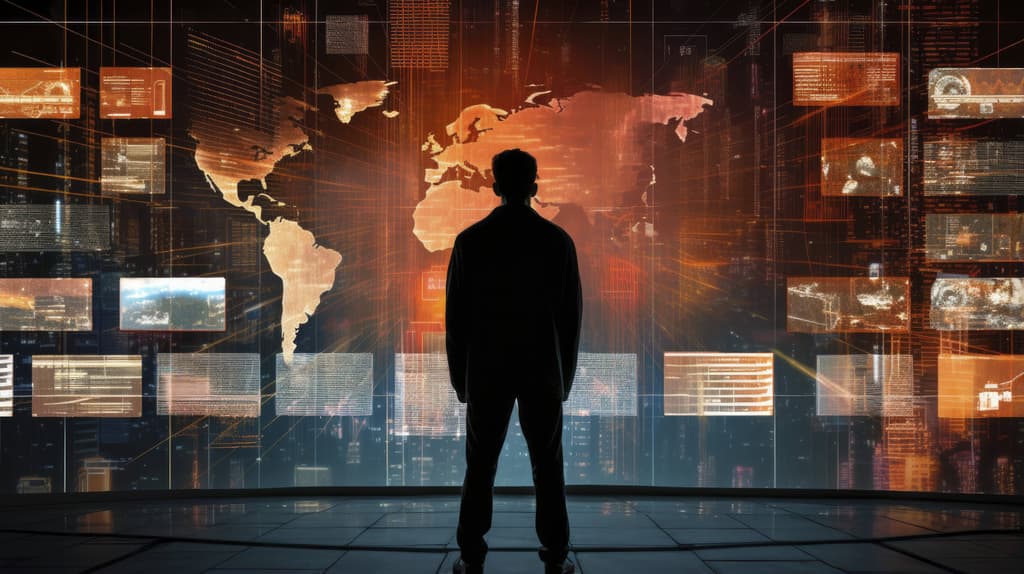Are Billionaires a Threat to World Security and Democracy?

In recent years, the rise of billionaires has sparked heated debates across the globe. Some see them as brilliant entrepreneurs who drive innovation and economic growth, while others argue that their immense wealth and influence pose a threat to world security and democracy. But what is the truth? Could it be that a handful of super-rich individuals have the power to shape the future of our societies, sometimes in ways that don't align with the public's best interests?
This article dives deep into the question: Are billionaires a threat to world security and democracy? We will examine the role billionaires play in shaping global affairs, the concentration of power in their hands, and the potential risks that come with it.
Table of Contents
- Introduction
- The Rise of the Billionaire Class
- Billionaires and Global Influence
- Economic Inequality: A Growing Concern
- How Billionaires Shape Politics
- Media Ownership and Control
- The Dark Side of Philanthropy
- Are Billionaires Undermining Democracy?
- Environmental Impact: Billionaires and Climate Change
- The Role of Tech Giants
- Global Security Threats: Billionaires and Geopolitics
- Possible Solutions and Regulations
- FAQs
1. Introduction
Billionaires wield an unprecedented amount of influence over global affairs today. From business magnates to tech titans, their wealth allows them to transcend the traditional boundaries of power. But is their impact positive or negative? Are billionaires merely a byproduct of capitalism, or have they become a disruptive force that threatens the very foundations of democracy and security? Let’s explore these questions in detail.
2. The Rise of the Billionaire Class
The world has seen a massive increase in the number of billionaires over the last few decades. According to Forbes, as of 2023, there are over 2,500 billionaires globally, holding a combined net worth of over $12 trillion. These individuals come from various sectors—technology, finance, fashion, and more—but they share one thing in common: unprecedented financial power.
Concentration of Wealth
The concentration of wealth in the hands of a few individuals is staggering. As billionaire wealth continues to grow, so does the gap between the ultra-rich and the average citizen. This widening wealth gap raises significant concerns about fairness, opportunity, and stability in society.
3. Billionaires and Global Influence
Billionaires don’t just influence local economies; they have a hand in shaping global markets, policies, and even international relations. Their investments span countries, and their decisions can ripple through the global economy in ways that impact millions, if not billions, of people.
The Power to Shape Economies
Take, for example, Elon Musk. His actions and decisions regarding electric vehicles and space exploration have shifted industries and governmental policies. Similarly, tech giants like Mark Zuckerberg and Jeff Bezos have impacted global communications, e-commerce, and beyond. While these advancements might seem beneficial, the concentration of such decision-making power in the hands of a few raises questions about accountability.
4. Economic Inequality: A Growing Concern
Billionaires often argue that their success benefits society, citing the jobs they create and the innovations they fund. However, critics argue that the rise of billionaires has coincided with growing economic inequality. As the wealthy become wealthier, the middle class and the poor struggle to keep pace. Is this inequality a direct threat to democracy?
Wealth Gap and Social Stability
Economic inequality can lead to social unrest, creating fertile ground for extremism and populist movements. When vast numbers of people feel left behind by the system, they may turn to radical solutions, threatening the stability of democratic institutions.
5. How Billionaires Shape Politics
One of the most pressing concerns is the outsized role billionaires play in political systems. Their contributions to political campaigns, lobbying efforts, and think tanks allow them to influence policy decisions that align with their interests, sometimes at the expense of the general population.
Money in Politics
Consider the vast amounts of money billionaires pour into elections. Whether through direct donations or Super PACs, the influence of billionaires on politics is undeniable. This influence often raises ethical questions: are politicians serving the people, or are they beholden to their wealthy donors?
6. Media Ownership and Control
Many billionaires also own significant portions of the media, giving them control over what information is shared with the public. This control allows them to shape narratives, often in ways that serve their business or political interests.
The Risk of Media Bias
When media outlets are owned by billionaires, there’s a risk that the information shared becomes skewed. This media control can have a chilling effect on democracy, as access to unbiased information is a cornerstone of informed voting and public participation.
7. The Dark Side of Philanthropy
While philanthropy is often seen as a noble endeavor, some critics argue that billionaire philanthropy comes with strings attached. When billionaires fund social projects, they often have the power to set the agenda, influencing what causes get attention and how they are addressed.
Private Agendas in Public Spaces
Philanthropy can also undermine democratic decision-making. By prioritizing their own preferences, billionaires can sidestep public accountability, shaping social policies in ways that align with their private agendas rather than the broader public interest.
8. Are Billionaires Undermining Democracy?
At its core, democracy is about equal representation and participation. But when a small group of individuals holds immense financial and political power, can we truly say that democracy is functioning as it should?
Distortion of Democratic Principles
Billionaires, with their vast resources, have the ability to sway elections, policies, and public opinion. This concentration of power threatens the principle of “one person, one vote,” distorting democratic processes and potentially eroding public trust in governance.
9. Environmental Impact: Billionaires and Climate Change
While some billionaires, like Bill Gates, have pledged to fight climate change, others have been criticized for their role in environmental degradation. The luxury lifestyles of the ultra-rich often involve high carbon footprints, and their business ventures sometimes prioritize profit over sustainability.
The Dilemma of Greenwashing
Though some billionaires fund environmental initiatives, critics argue that these efforts are often insufficient and may even serve as a form of "greenwashing"—appearing to support sustainability while continuing to engage in practices that harm the environment.
10. The Role of Tech Giants
Tech billionaires are perhaps the most influential group today. Companies like Amazon, Facebook, and Google have become integral to our daily lives, but their founders' unchecked power raises concerns about privacy, data security, and the concentration of control over information.
Tech and Surveillance
With access to vast amounts of personal data, tech billionaires hold immense power over our privacy. In an age where data is the new currency, the potential for abuse—whether intentional or not—is high, creating a significant threat to individual freedoms and global security.
11. Global Security Threats: Billionaires and Geopolitics
Billionaires don’t just influence politics and the economy; they also have a hand in global security. Their business ventures, particularly in industries like technology and defense, give them influence over geopolitical tensions.
Private Interests in National Security
When billionaires have stakes in industries related to defense and security, their personal interests may not always align with national or global security goals. This can lead to conflicts of interest that jeopardize peace and stability.
12. Possible Solutions and Regulations
If billionaires pose a threat to democracy and world security, what can be done to mitigate these risks? Some argue for wealth taxes, stricter campaign finance laws, and regulations on media ownership.
Rebalancing Power
Governments and international bodies could impose regulations to ensure that billionaires do not wield unchecked influence. Measures like wealth redistribution, corporate accountability, and greater transparency in political donations are potential solutions to rebalance the scales.
13. Conclusion
Are billionaires a threat to world security and democracy? The answer, like many complex issues, is not black and white. While billionaires have undeniably contributed to innovation and economic growth, the concentration of wealth and power they hold can undermine democratic principles and global stability. The challenge moving forward is finding ways to harness their resources and influence in ways that benefit the broader public, without allowing them to overshadow the democratic process.
14. FAQs
- Why are billionaires seen as a threat to democracy? Billionaires are seen as a threat to democracy because their wealth allows them to exert outsized influence on politics, media, and public policy, which can undermine the democratic principle of equal representation.
- Do billionaires help or hurt the economy? Billionaires can both help and hurt the economy. While they create jobs and drive innovation, the concentration of wealth can also contribute to economic inequality and instability.
- How do billionaires impact global security? Billionaires can impact global security through their investments in industries like technology and defense, where their personal interests may not always align with national or global security concerns.
- Should billionaires be taxed more heavily? Many argue that billionaires should be taxed more heavily to address wealth inequality and ensure that they contribute fairly to the societies in which they thrive.
- Can philanthropy by billionaires be problematic? Yes, billionaire philanthropy can sometimes be problematic as it allows them to set the agenda for social initiatives, potentially undermining democratic decision-making and prioritizing private interests over public good.



